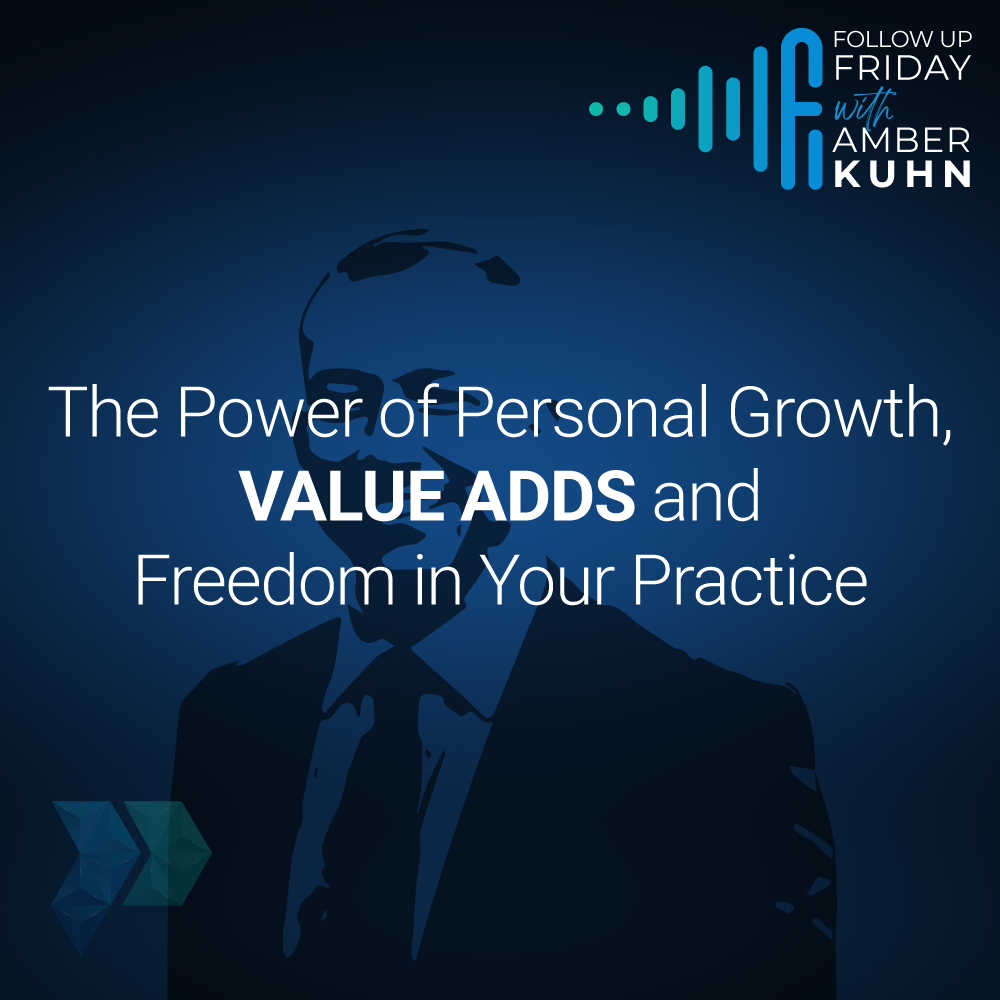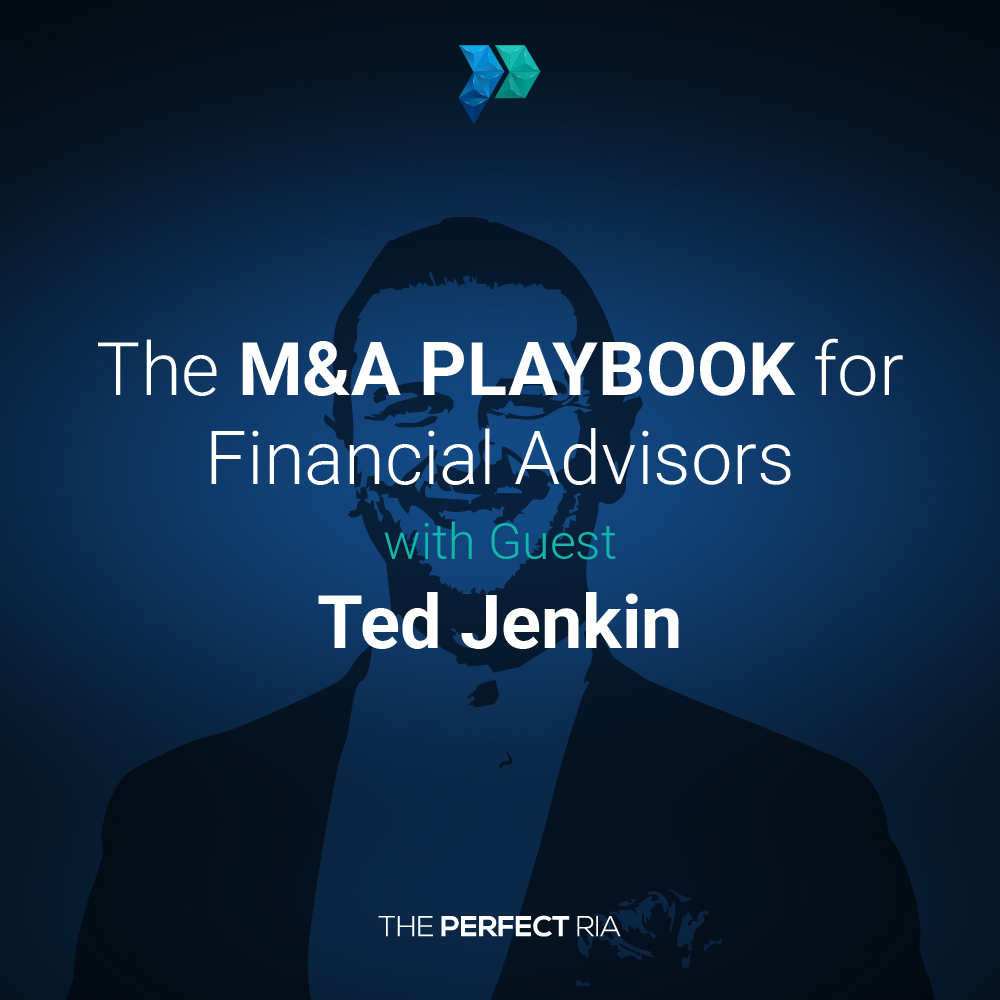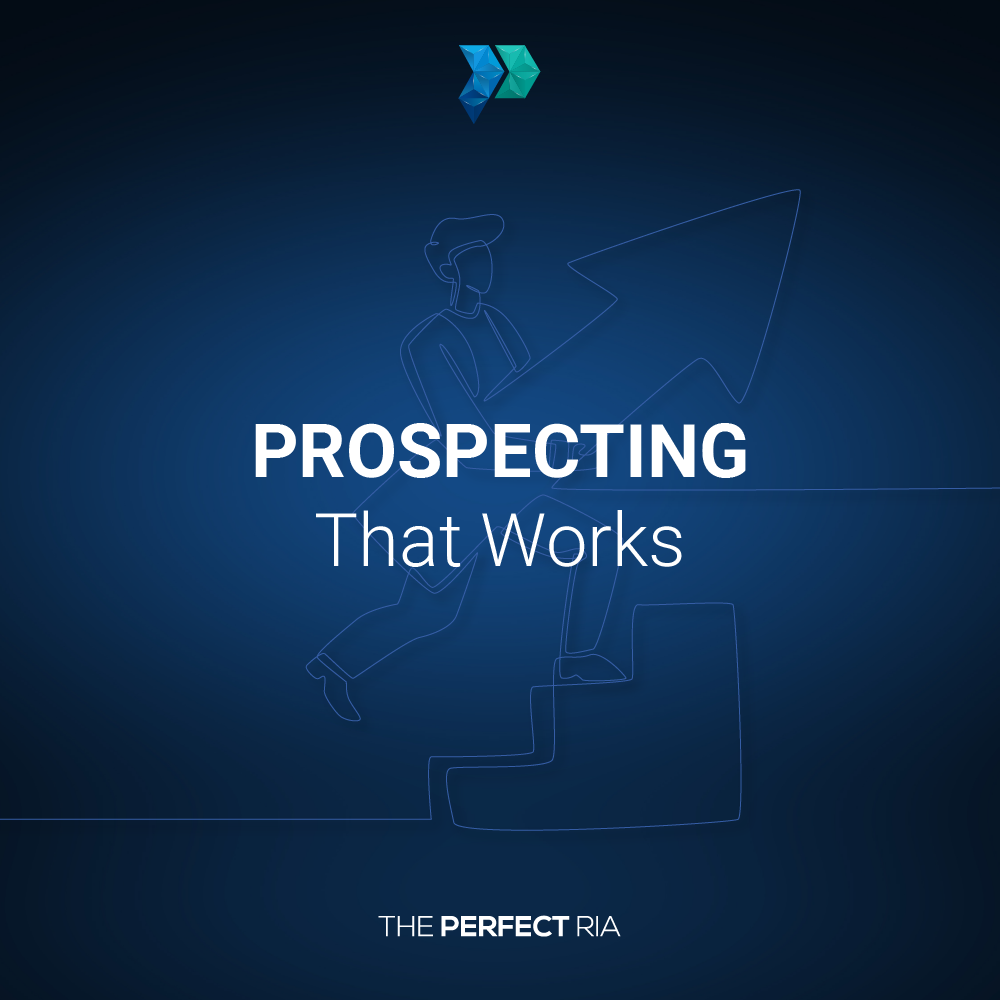What You'll Learn In Today's Episode:
- Value adds can be simple and make a big difference for clients.
- Overcoming addiction can lead to personal and professional growth.
- Having documented systems and processes is crucial for transitioning to the freedom stage.
- Focusing on financial plans is important in the freedom stage.
In this week’s recap of The Perfect RIA podcast, Amber highlights key insights for financial advisors focusing on growth and success. Monday’s episode features Matt and guest Aaron Palmer discussing impactful value-add strategies, including conducting unclaimed property searches during client meetings and using unique communication methods. Aaron also shares his personal journey to sobriety, sparking a discussion on industry challenges like addiction and work-life balance.
Thursday’s episode, led by Jamie, explores the transition from the growth stage to the freedom stage in an advisor’s career. Key concepts include client selectivity, overcoming the “shopkeeper mentality,” and implementing effective systems. This stage allows advisors to focus on high-value activities while trusting their team and processes.
Resources In Today's Episode:
Read the Transcript Below:
Amber Kuhn
Hello TPR nation. This is Amber Kuhn. Thank you for joining me on today’s Follow up Friday, where I’ll be recapping this week’s episode highlights and action items. On Monday, Matt was joined by Aaron Palmer, an advisor from Washington to talk about value adds, as well as a personal experience that changed his life. Matt And Aaron pointed out that advisors think value adds need to be super elaborate. We have so many available options that are fundamentals and they make a big difference for your clients. Aaron said during his review this year, he did an unclaimed property search for every client by going to unclaimed.org going to their state, and then entering the client’s name, their spouse and their children’s names to find as much property as we could to help them claim it. He’s completely virtual, and he’d do this while meeting with his clients and doing a screen share. From there, he’d either help the clients claim it right there, or follow up with a letter on this what to do next and what they could expect. Aaron had a client who ended up finding about $10,000 from an old IRA. But for most clients, this is typically a smaller amount, but it only takes a few minutes, and it demonstrates to clients that you’re thinking about more than just money that you manage, and they feel like they’re being taken care of. This is a value add that any advisor could do. Aaron then shared his personal story of how he’s been sober for 12 years after an experience he had on the trip, which he said changed his life. During the trip, he met a mother and her son who was battling cancer, who were on vacation because of a Wish granted by the Make a Wish Foundation. Aaron said that conversation inspired him to change his life through this, and with a presentation he did for the foundation, he shared how by making that wish for that little boy, it went further than anyone could have imagined, and how it saved his own life. Matt and Aaron spent some time talking about addiction in the industry, whether it’s alcoholism or having addiction to working, and the impact it has for Aaron and with the experience he went through, he realized that after getting sober, his life truly took off. He pointed out that so many people struggle with this by keeping up with the good habits that he’s learned. He’s been able to stay sober for Aaron to be able to open up about his struggles and his experience. He said it was through both time and his faith that he got the confidence to do this and share it with so many people. Matt And Aaron pointed out that with this or any other thing in your life, you don’t always need to reinvent the path, whether that’s trying to get server or in your business, once you find someone doing something that’s working, you need to follow that path. Aaron then went into how he runs his practice surge, how he did a fee increase, and how he’s so intentional with his schedule, he Matt dug a little deeper into working with his team and what they focus on year to year, whether it’s updating beneficiaries or going through who they haven’t heard from in a while. Another value add he mentioned is printing off a detailed balance sheet that lists all accounts, mailing that to the client with instructions to then tuck that into their will. He also pointed out how anything he sends to his clients is in a bright orange envelope. He makes his clients aware of this so they know that when they get that it’s something important. Things like these are simple, but they work and they make a difference. Let’s get into action items. Consider raising your fees or implementing search if you haven’t yet, and look at simple value adds that you can do, such as unclaimed property or the network statement, and giving clients instructions for them to tuck that into their well, Aaron recommends reading the book, who, not how, and if you feel an inkling of procrastination, that’s something you need to delegate. On Thursday, Jamie was talking about the second stage of an advisor’s career path, freedom. Now if you missed last week’s episode, Jamie was talking about the growth stage. So this week, she wanted to talk about what happens when you’ve grown your practice and you either get to a point where you’re complacent or you’re burnt out, and what does that mean for you, your family and your clients? That’s when you enter that freedom stage. Once you get to this point, you can start being discerning about your clients. You don’t have to take everyone who walks in. So in Jamie’s office, when they’re going through their client list, they have a test for whether the advisor or the team is dreading meeting with a particular client. And this isn’t just because you’re about to have a hard conversation. It’s that person every time that is taking up all your mental energy, even before you meet with them, instead of you focusing on the majority of the people who you want to meet with, they become your problem client. And Jamie said, You’re setting yourself up for regulatory failure. Your problem client is going to be a red flag and send in a complaint. This is the client you need to graduate. Another thing that comes up when you’re transitioning into the freedom stage is advisors struggling with that shopkeeper mentality, meaning you assume that things aren’t or can’t happen without your involvement. Advisors end up with guilt about nothing in the office, but with freedom, it’s all about making sure you have documented systems, policies and processes in place. Jamie said that’s a stepping stone between growth and freedom. Now, if you don’t have these in place, you need to take everything you know or know how to do and document it so someone else can handle this. And if you need a place to start, she recommended starting with a communication policy, because you don’t want your team looking at you as the easy button. And if you’re dealing with the guilt physically in the office, Jamie said you can still have check in meetings. You can still see the call volume coming in. You can still have a pulse on what’s happening when you’re out of the office and when things come up. Take the time to do a guided discovery with your team to see if you’re dealing with a process problem or a people problem. Make sure that everyone understands that they’re part of everything that’s happening in your practice. This is how you get to the freedom level, because at this point you need to be focusing on financial plans, business development, or meeting with clients, not just him the office. Jamie wrapped up by talking about the need to take action, and with the freedom stage, you’ll never get to that point, let alone the enterprise stage if you aren’t taking action. That wraps up this week’s recap. So TPR Nation, if you’re looking for more resources, or if you have a question, be sure to email us at lifestyle@theperfectria.com. Thank you for joining me, and please share this or any of our episodes with another advisor or team member who you think might benefit from listening. And be sure to subscribe to The Perfect RIA Podcast so you don’t miss an episode and happy planning.









